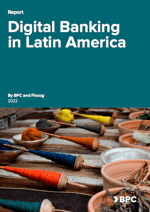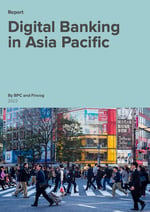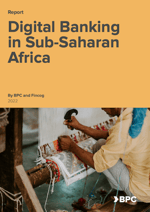Across the APAC region, economies are rapidly transitioning from cash to digital payments, with credit and debit cards expected to dominate new sales over the next four years. This shift is fueling significant investments in modernising card management systems, and Laos is no exception. While this transition brings great opportunities for financial inclusion, it also poses significant challenges for the country’s banking sector.
Why the shift to cards?
Laos has historically relied on cash for most transactions, but recent progress in digital infrastructure and financial literacy is driving a shift toward card payments. The Lao government, alongside organisations like the Asian Development Bank (ADB), has been promoting financial inclusion and digital payment systems, setting the stage for more widespread card adoption. This progress is visible in the growing availability of debit and credit cards, as well as an expanding network of merchants that accept these payment methods.
Despite the rise of mobile wallets, physical and virtual cards remain central to the country’s payment ecosystem. The continued demand for cards stems from their familiarity and the added functionality they offer, such as seamless integration with contactless payments and digital wallets. As a result, cards are becoming a vital tool in driving Laos' financial evolution — and greater financial inclusion.
As more people gain access to card-based financial services, particularly in underserved areas, the potential for greater financial inclusion is enormous. For individuals who previously had little or no access to formal banking, card payments can unlock new economic opportunities. However, the rapid adoption of digital payments puts pressure on banks to upgrade their systems to meet the growing demand.
Legacy systems and infrastructure gaps
While the shift towards digital payments presents exciting opportunities, banks in Laos—like many around the world—face significant challenges in meeting the needs of this growing market. The major problem is that most financial institutions are burdened by outdated legacy systems that are difficult to upgrade and expensive to maintain.
Cashless payments in Southeast Asia accounted for 93% of transactions in 2021, with the highest adoption rate of 97% in Singapore. This shift is a direct result of banks spending nearly 70% of their tech budgets on maintaining legacy infrastructure, which has become unsustainable as demand for more efficient, scalable solutions grows.
To keep up with this evolving landscape, banks need to transform their card management systems to offer both scalability and security. However, this transformation can be complex and resource-intensive, requiring expertise many institutions may lack.
Collaborating to overcome challenges
"To navigate these complexities, banks in Laos are increasingly looking to external technology partners. The right partner can provide the agility, scalability, and end-to-end card management solutions needed to modernise infrastructure. Importantly, they can help banks implement high-level security measures—such as tokenization, dynamic CVVs, and data analytics—to prevent fraud and protect customer data, a critical concern for financial institutions worldwide": says Veasna Nguon, Business Development Director for Cambodia, Laos at BPC
A reliable partner also ensures that these systems are future-proof, capable of adapting to changing consumer demands, and integrating new technologies like contactless payments and biometric authentication. Contactless payments are rapidly gaining traction in Laos, with transaction volumes projected to surpass $10 trillion by 2027, providing users with a fast, convenient, and secure tap-to-pay solution.
Meanwhile, biometric authentication, which leverages fingerprints and facial recognition to add an extra layer of protection, is widely considered the future of payment processes. Its growing importance stems from its ability to offer unparalleled security by tying payments directly to a user’s biological traits, reducing the risk of identity theft and fraud far more effectively than traditional methods like PINs and passwords.
A case of Cambodia’s growing banking sector
"Laos is looking at its neighbours for more insights, and Cambodia is a perfect example in the region. The banking sector in Cambodia has been growing steadily in both scale and scope.", adds Veasna Nguon: "While new entrants—including fintechs and banks—are seizing the opportunity to place Cambodia at the heart of their pan-ASEAN expansion strategy, the country already boasts an established network of commercial banks."
Cambodia Post Bank was seeking a solution to expand the functionality of its card management system and drive business growth—something it couldn’t achieve with its previous setup. BPC introduced its next-generation card management solution, enabling bank’s customers to enjoy Visa international scheme cards. The platform addresses CPBank’s growth ambitions, helping the bank reinforce its market reputation and diversify its services portfolio. Since introducing BPC’s SmartVista suite and launching internationally branded cards along with ATM and EMV ATM cards, CPBank has seen its client base grow by 50%.
The Future of Card Management in Laos
The Cambodia Post Bank example illustrates how, with the right technology and partnerships, banks in Laos can modernise their systems to meet the demands of a growing digital economy. By upgrading card management infrastructure, financial institutions can offer faster, more secure, and more accessible services to a wider range of customers, ultimately driving financial inclusion across the country.
BPC is a global payments leader, empowering financial institutions, with over 25 years of experience in providing cutting-edge solutions for card management and payment systems. BPC empowers tier-1 and tier-2 banks, FinTech’s, and non-bank financial institutions to navigate the complexities of the modern payments ecosystem.
The platform supports everything from card issuance and processing to security and compliance, ensuring that financial institutions have the tools they need to stay competitive in their industry. The future of card management lies in the seamless integration of virtual and physical cards, faster time to market, and enhanced security measures. BPC is committed to helping these partners achieve these goals through our innovative technology solutions.
A Brighter Digital Future
While the path toward digital payments in Laos presents challenges, it also opens up a world of opportunities for financial institutions that are ready to adapt. By embracing partnerships and innovation, banks can position themselves at the forefront of this new era in payments, ensuring that they meet the needs of both today's consumers and tomorrow's digital economy.




